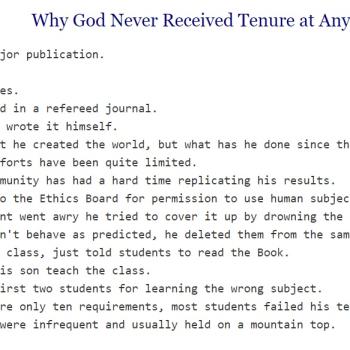Two comments on my recent “Mumpsimus” post seemed worth sharing. First, James Snapp shared an anecdote about the origin of the term:
The story goes that there was a medieval priest who habitually mispronounced part of the liturgy; when he was supposed to say “sumpsimus” (we have taken/consumed), he instead said “mumpsimus,” a non-word. He did this for decades, and one day, another priest visited and informed him of the mistake. But the old priest replied, “For forty years I have said it that way; I will not abandon my venerable old mumpsimus for your new-fangled sumpsimus.” Or words to that effect.
The term is a favorite among New Testament textual critics who encounter individuals who are determined to adhere to poorly attested readings in the Textus Receptus, instead of adopting readings which have broader and older attestation, especially when the reading in the TR appears to have originated as the result of a simple mistake.
Last few seconds made me smile anyway.. The banana-man has a sense of humor at least.
It also perfectly illustrates the problem: 99.99% of experts all agree with what seems to be a counter-intuitive answer to a person who hasn’t studied the field, precisely because the data leads to that conclusion. That’s the problem with trying to settle complex matters by debate: in that format, the more intuitive answer starts with a huge leg up on a less intuitive answer. The fact that the less intuitive answer might be supported by huge mountains of evidence doesn’t make much difference if you don’t have time to lay out all that evidence to the people.
That’s why appeals to proper authorities are necessary evils in such situations, and a country that is so distrustful of experts will believe so many more intuitive but wrong things.












